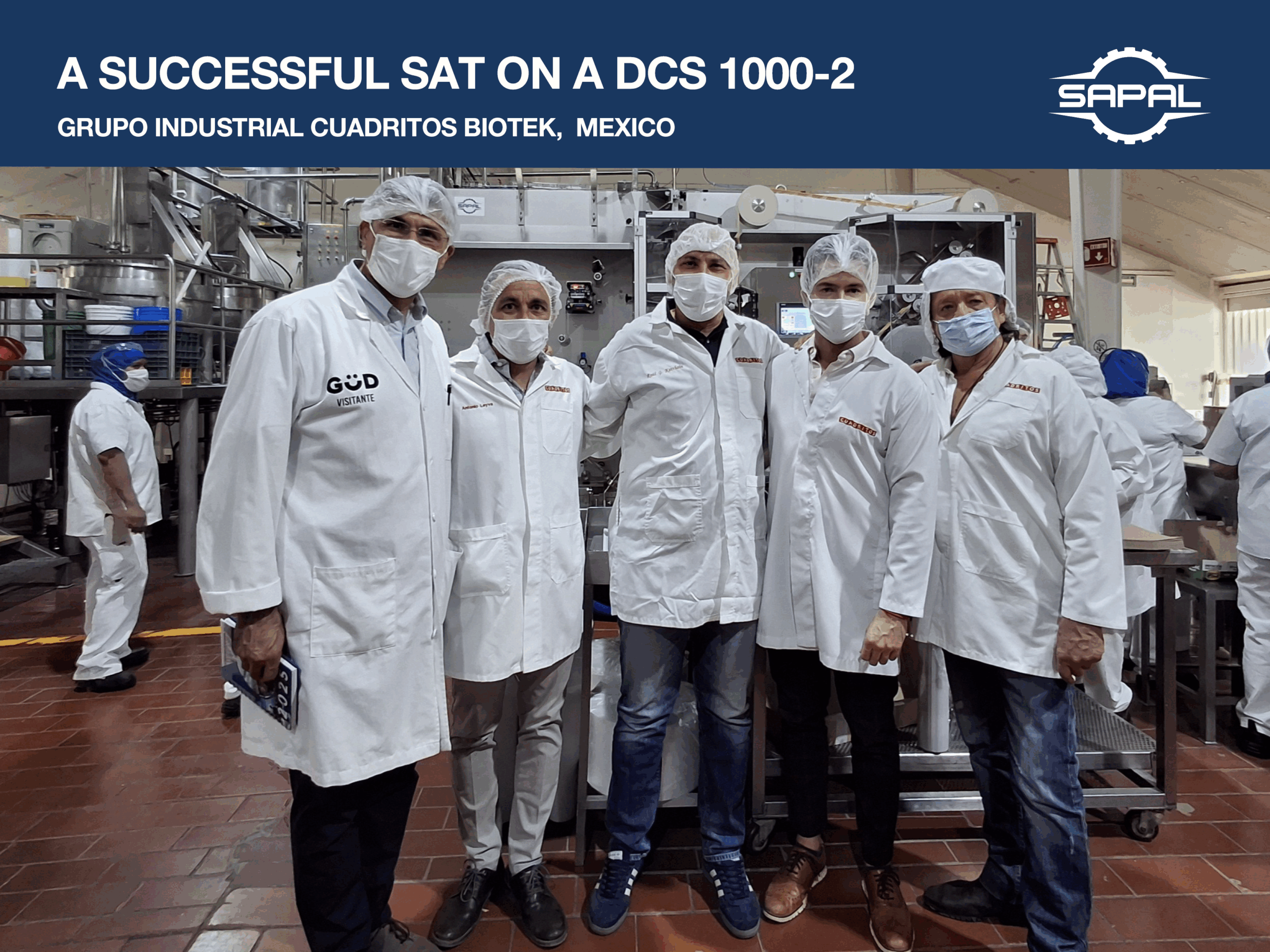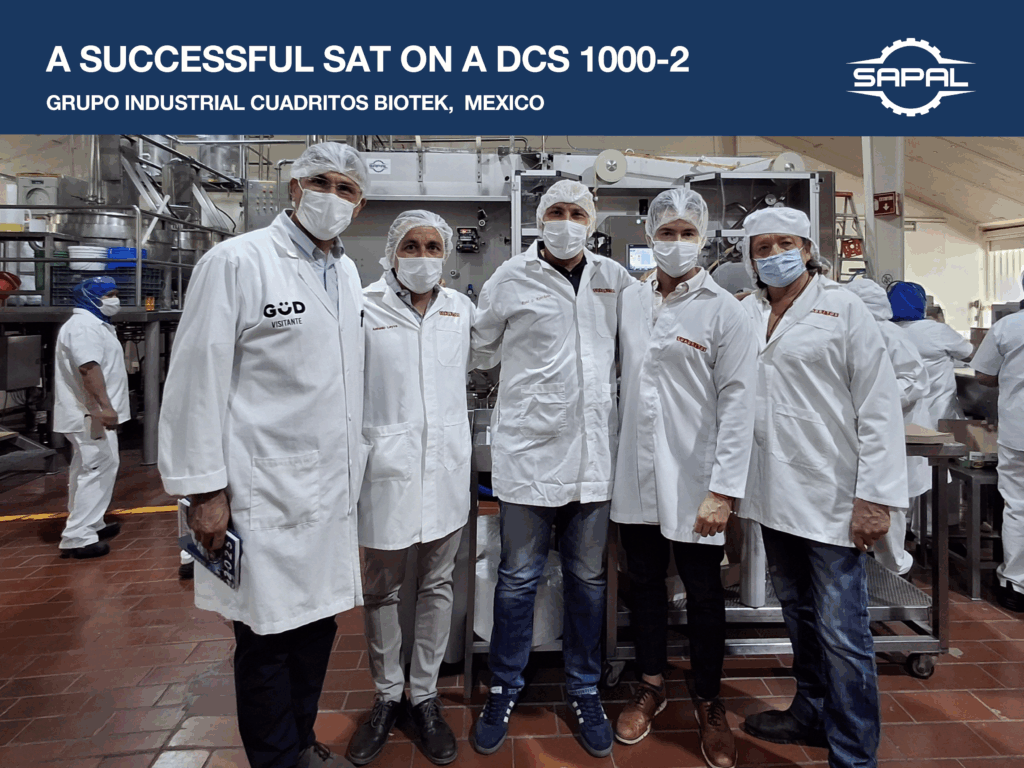

Sapal SA
Avenue du Tir-Fédéral 44
1024 Ecublens
Switzerland
+41 21 633 53 00
Hotline Service : +41 21 633 54 44
© Sapal SA copyright 2021 – design & powered by stanprod

Discover the purpose of a SAT (Site Acceptance Test) in the food industry, particularly for machines that package cheese slices, and the essential steps of this validation process.
✅ What is a SAT – Site Acceptance Test?
The Site Acceptance Test, or on-site acceptance test, is a key step when installing industrial machinery at a client’s site. It is the moment when it is verified that the machine operates in accordance with the contractual requirements, within its actual operational environment. For example, for machines that package cheese slices, the SAT validates the production rate, efficiency, safety, packaging quality, etc.
However, in 2020, during the height of the health crisis, travel was impossible. We therefore quickly implemented an alternative:
the remote FAT, conducted live.
🛠️ Why is the SAT indispensable?
The Factory Acceptance Test (FAT) is not conducted under the same conditions as those found on the production site.
Therefore, the SAT makes it possible to:
Ensure that the machine is properly integrated into the client’s production line
Validate the contractual performance in its actual operational environment
Guarantee that operators can use and maintain it independently
📋 Steps of a SAT for a cheese slice packaging machine
Preparation and initial conditions
Check connections (electricity, compressed air, cold water, etc.)
Verify room configuration
Ensure availability of the product to be packaged and packaging materials
Basic technical checks
Mechanical, electrical, and pneumatic inspection of the machine
Test safety devices and alarms
Validate interconnections with upstream and downstream equipment
No-load start-up
Start the machine without product to test sequences
Identify any blockages or desynchronizations
Tests under real conditions
Test with cheese packaging material
Observe the machine during continuous operation
Quality control: sealing, cutting, weight of the stacks of cheese slices
Performance test
Simulate real production at contractual speed
Measure output and rejection rate
Verify process consistency
Hygiene and safety
Validate ease of cleaning (critical in the food industry)
Check compliance with current safety standards
Staff training
Train operators in the safe use of the machine
Train maintenance technicians for upkeep and troubleshooting
Final validation and SAT report
Measure machine output during production
Detailed report with results, observations, and photos
If compliant: client’s signature = official acceptance
Otherwise: define a corrective action plan
🧾 In conclusion
The SAT is much more than a simple technical test: it is a strategic validation step that ensures the machine meets contractual requirements and integrates perfectly into the production line. It is also a moment of knowledge transfer, so that teams are trained and ready to operate the machine safely and efficiently.
The signing date of the SAT document also marks the start of the warranty period.
Ready to bring your vision to life?
Our team of talented designers and experienced project managers will support you every step of the way.
Let’s discuss your ideas—we’ll provide you with a personalized quote tailored to your needs.
We are here to transform your concepts into cutting-edge automated solutions.

Sapal SA
Avenue du Tir-Fédéral 44
1024 Ecublens
Switzerland
+41 21 633 53 00
Hotline Service : +41 21 633 54 44
© Sapal SA copyright 2021 – design & powered by stanprod
Nous utilisons des cookies pour améliorer votre expérience de navigation, analyser le trafic du site et soutenir nos actions marketing. En continuant à utiliser notre site, vous acceptez l’utilisation de cookies. Pour en savoir plus, veuillez consulter notre Politique de confidentialité.